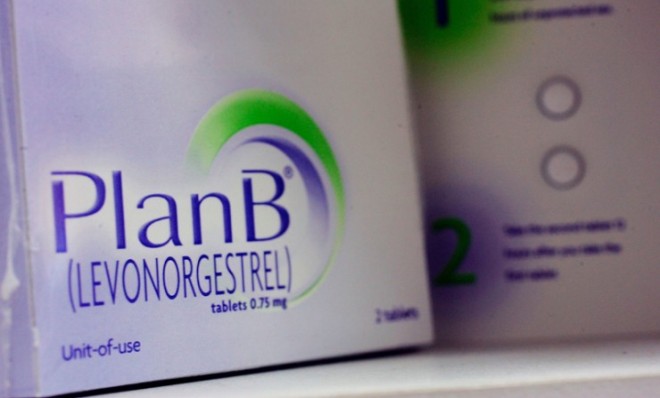Should teen girls get access to Plan B before they have sex?
The American Academy of Pediatrics is newly recommending that doctors play a more pro-active role in prescribing the morning-after pill for teenagers

A free daily email with the biggest news stories of the day – and the best features from TheWeek.com
You are now subscribed
Your newsletter sign-up was successful
It's no secret that children born to teenage mothers are more likely to do poorly in school, suffer from behavioral problems, and become sexually active at a younger age. Though teen pregnancies have fallen overall in the U.S. in the past two decades, America still has the highest teen birthrate among developed countries such as France (where the rate is five times lower) and Canada (two-and-a-half times lower). This week the American Academy of Pediatrics (AAP) issued a new policy statement recommending that doctors prescribe teens (age 16 and younger) emergency contraceptives like the Plan B pill before they start having sex instead of "waiting until a young patient's 'Plan A' goes awry," says Amina Khan at the Los Angeles Times. The pill slows down the journey of a fertilized egg, preventing it from entering the uterus until sperm die off. Previous research has shown it's as safe to take as aspirin, but nonetheless women under 17 need to obtain a prescription beforehand. (Earlier this year, the Obama administration made the controversial decision to reject a similar Food and Drug Administration recommendation that the morning-after pill be made available to all women without a prescription). The AAP is urging pediatricians to take a more proactive role in prescribing Plan B to teens, but is that really a good idea?
Doctors have a moral obligation: Although some pediatricians may refuse to prescribe teenagers the morning-after pill because of their personal beliefs about sex, they nonetheless "have a duty to inform their patients about relevant, legally available treatment options," even those "to which they object," said the AAP in a statement. Analysis of seven randomized studies of emergency contraception found that having a Plan B prescription did not increase teens' sexual activity or decrease use of other contraceptives as many critics fear. Pediatricians should do their part to limit unwanted pregnancies.
"Prescribe morning-after pills in advance, say pediatricians"
The Week
Escape your echo chamber. Get the facts behind the news, plus analysis from multiple perspectives.

Sign up for The Week's Free Newsletters
From our morning news briefing to a weekly Good News Newsletter, get the best of The Week delivered directly to your inbox.
From our morning news briefing to a weekly Good News Newsletter, get the best of The Week delivered directly to your inbox.
Giving teens access is still a bad idea: "I think it's very detrimental," says Mat Staver, dean of Liberty University Law School in Lynchburg, Va. At the very least, the prescription should require parental notification and consent. In any case, "I think it's awfully early for these young girls to be making these decisions that have life or death consequences."
"Is age 16 too young for Plan B? How about younger?"
Maybe now the Obama administration will change its stance: Obama made women's health a centerpiece of his reelection bid, "but his unscientific position on the morning-after pill remains a sticking point for many of the women who got him a second term," says Katie McDonough at Salon. Many considered the administration's recent FDA rejection a political move more than anything; let's hope that this week's support from a major pediatrics group and a second term will force him to turn some of that "fiery rhetoric about women — yes, even teenagers — controlling their own bodies into sound policy recommendations. Sasha and Malia certainly deserve as much."
"Pediatricians: Make Plan B available to teens"
A free daily email with the biggest news stories of the day – and the best features from TheWeek.com
-
 Health insurance: Premiums soar as ACA subsidies end
Health insurance: Premiums soar as ACA subsidies endFeature 1.4 million people have dropped coverage
-
 Anthropic: AI triggers the ‘SaaSpocalypse’
Anthropic: AI triggers the ‘SaaSpocalypse’Feature A grim reaper for software services?
-
 NIH director Bhattacharya tapped as acting CDC head
NIH director Bhattacharya tapped as acting CDC headSpeed Read Jay Bhattacharya, a critic of the CDC’s Covid-19 response, will now lead the Centers for Disease Control and Prevention